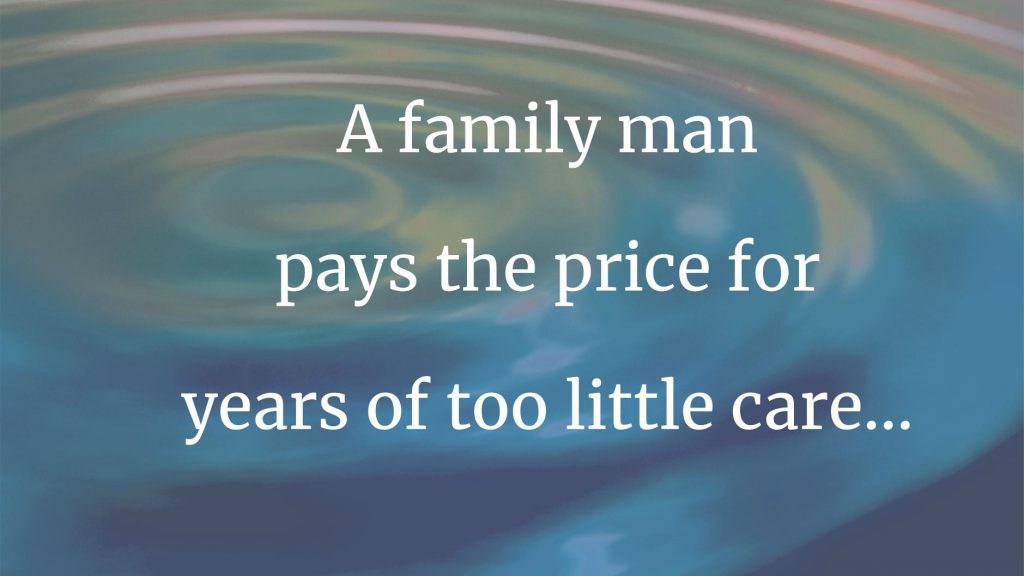Accepting the Inevitable
Simon and Garfunkel said it best: “How terribly strange to be seventy.” When I turned seventy in 2017, I felt old for the first time in my life. Nothing external changed except for a few more wrinkles and gray hairs; I kept my part-time teaching job, continued to usher at theatres, and kept up my reading marathon. However, internally, I felt mortal; most of the chapters in my life have ended, and only a few chapters and the epilogue remain.
Accepting the Inevitable Read More »
An Editor’s Invitation: Aging
An Editor’s Invitation: Aging Read More »
Last Day
filled with meds both past and present
and read out loud the labels of those we stopped,
why he needs oxygen at night, and the rescue inhaler.
Between pills it’s my job to ask in a generic way
because his story needs a prop.
His ex called yesterday, Only one ex, one’s enough,
Dead, Slightly Dead and More Dead
When the walls of his failed heart collapse, he suffers a damaging heart attack. He lacks any blood flow, so the EMTs declare him dead. Shocked, he fluctuates between slightly dead and more dead. The ambulance volunteers bring him to Northern Westchester’s cath lab.
Unafraid, he sees The Light. He meets Moses carrying tablets down Mt. Sinai, greeting newcomers going up. Relatives weigh his mitzvahs: pro bono work with clients, sick friends, nursing home visits. The judge calls his wife to the witness stand. She says, “He should live.” They await the verdict.
Dead, Slightly Dead and More Dead Read More »
“You Need to Stop Drinking”
“You Need to Stop Drinking” Read More »
Desperate Measures
In my very first job as a doctor, working in a London hospital in the 1980s, I always took a ridiculously detailed past medical history for every patient I saw. I started to notice how many elderly women had had septicemia, a life-threatening infection in which enormous amounts of bacteria enter the bloodstream.
The neighborhood surrounding the hospital had once been the worst slum in London, and it didn’t take me long to guess that these infections were probably caused by illegal self-induced abortions during the hungry years of the Depression.
Desperate Measures Read More »
Breadwinner
The first thing I notice are the dark circles under Mr. Jones’s eyes.
It’s 4:30 pm on a Wednesday during my third year of medical school. I’m in the fifth week of my family-medicine rotation, and we’re deep into our daily routine: triage, history, physical examination, differential diagnosis, present the case to the attending physician, repeat.
The Third Wheel
I am trying to move the language from forever to this moment, in the aiport departure lounge. To loosen up on declaring “You’re always” and “You’re never” and instead say “Right now you are …”
I might think I know what’s coming, but I have no idea exactly what it will look like and when it might happen. For now, the “what ifs” are not dormant, but also not dominant. Regardless, an illness becomes an uninvited third person in a two-person marriage.






